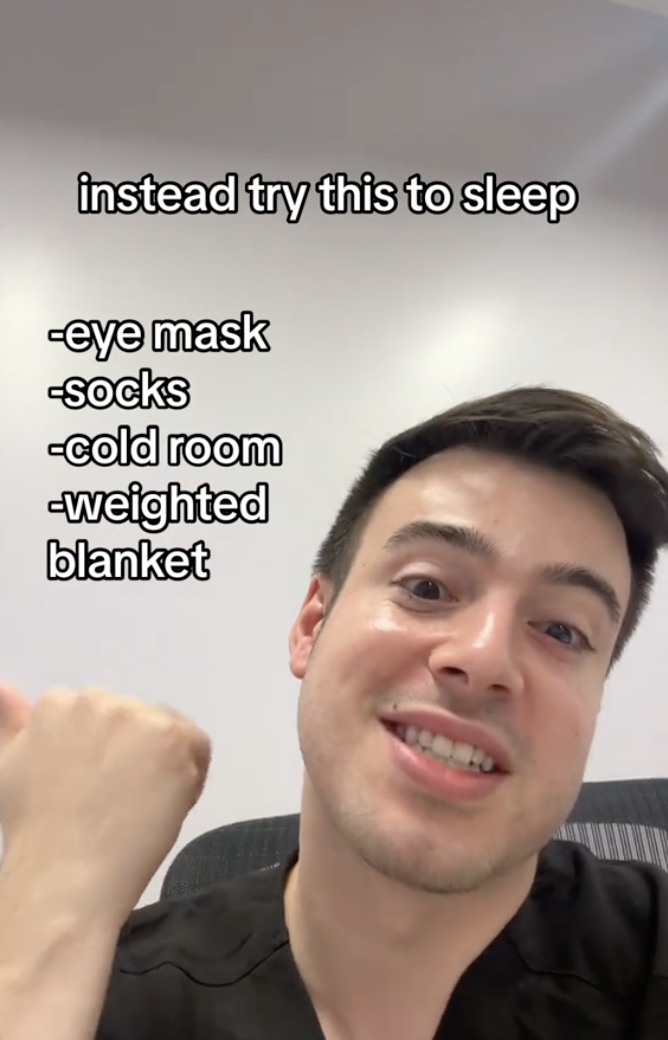He stitches his video with a woman who says she uses it as a sleep aid every night because one of the main side effects people experience with the use of diphenhydramine — which is the main ingredient used in Benadryl — is drowsiness.

In the video, Dr. Charles summarizes a study* that found that taking an anticholinergic drug long term was associated with higher dementia risk.

And he concludes that it's a cumulative risk. So if you take diphenhydramine to sleep over months and years, it could mean you have a higher cumulative risk of developing dementia, according to this study.

BuzzFeed spoke to Dr. Charles, who has been practicing for over five years, to learn more.

Dr. Charles explained that diphenhydramine is an antihistamine commonly used for allergic reactions. "One of the major side effects of antihistamines (like Benadryl) is drowsiness. This side effect is now being utilized as a sleep aid. In the short term, antihistamines are safe and well tolerated. They are used commonly in dermatology, allergy clinics, and internal medicine," he shared.

In his practice, Dr. Charles said, he has been shocked to learn just how many of his patients are regularly taking diphenhydramine to sleep. "Taking these as sleep aids short-term appears to be safe. However, when taken every night for sleep, we’re seeing associations with dementia*," he said.

And he isn't sure what specific ingredient may be linked to dementia. "Popular sleep aids (like ZzzQuil and Tylenol PM) are often just diphenhydramine or Tylenol (acetaminophen) plus diphenhydramine," he explained. "Furthermore, if diphenhydramine isn’t the main ingredient, we do know that it is usually a closely related medicine (likely with the same risk profile)."

The risks of developing dementia, according to Dr. Charles, appear to be cumulative — meaning the more diphenhydramine you take, the higher your risk. "As for why this OTC medicine is associated with dementia, we may never find out. I hypothesize that the lack of rest (brain downtime) has something to do with dementia," he shared.

So why aren't these risks being disclosed more openly? Dr. Charles speculates that it has to do with pharmaceutical marketing, lack of long-term data, and the stresses of everyday life.

Dr. Charles isn't sharing this information to start fearmongering — he simply wants people to educate themselves about the risks involved when relying on certain medications that are not meant to be taken long-term. "And I would caution against any long-term sleep aid," he added.
Lastly, Dr. Charles said that even though it takes time and dedication, a consistent routine is the safest sleep aid. "I like to recommend a winding-down routine to my patients," he said. "No screentime, no caffeine, no alcohol."

